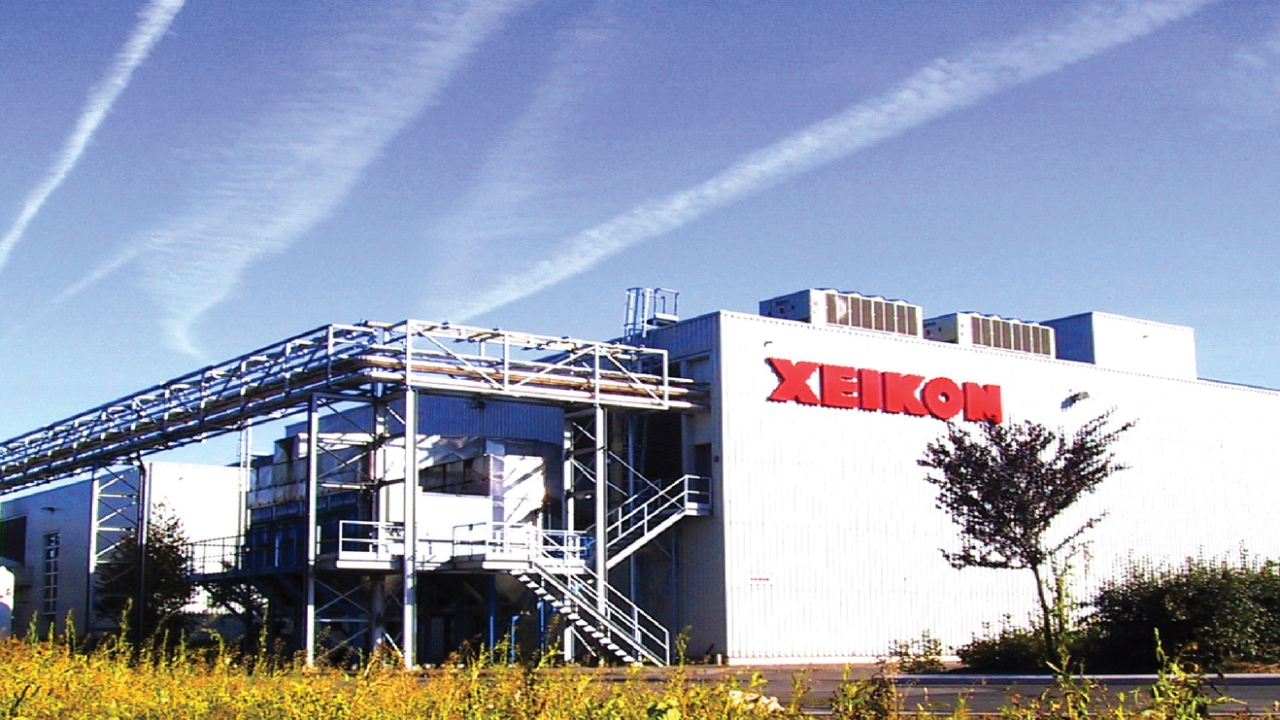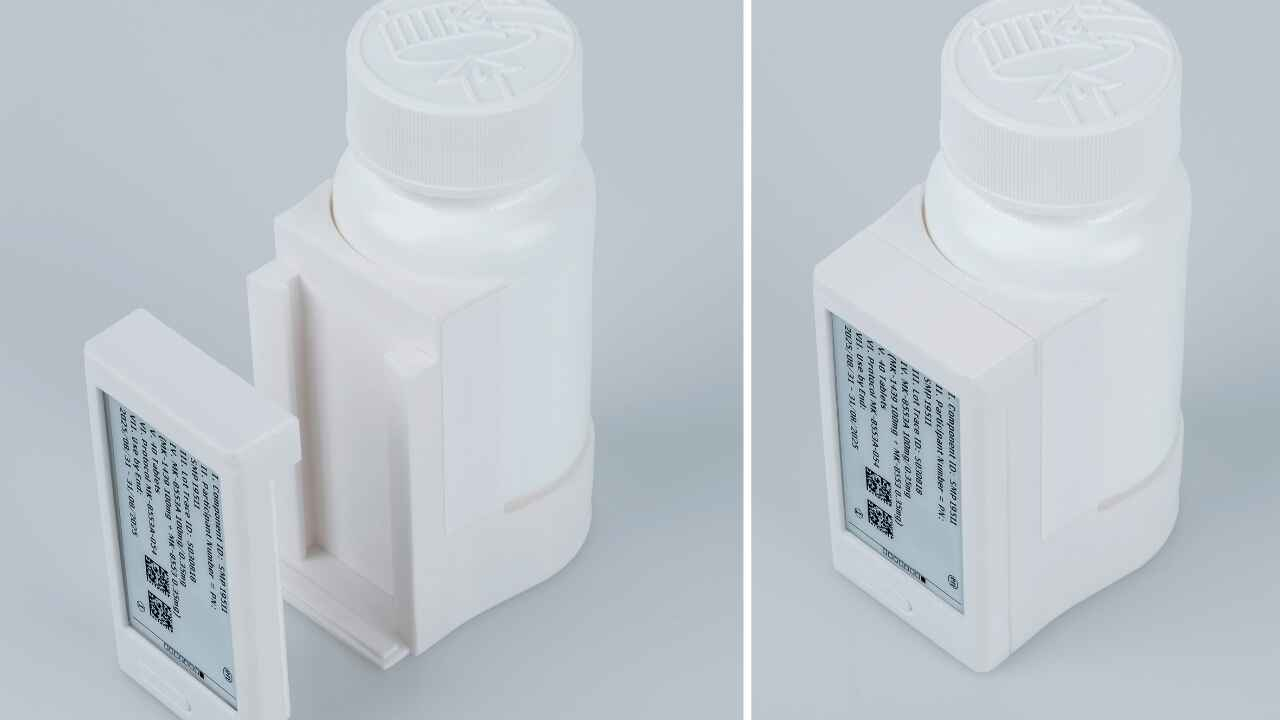Xeikon sharpens NAFTA region focus

Xeikon is sharpening its focus on North America as the digital label market continues to expand. Danielle Jerschefske reports
One of the founders of digital label press technology in the 1990s, Xeikon is a driving force in the global adoption of digital label printing.
The majority of Xeikon’s current market share is in Europe but it is working to gain more business in North America. The headquarters and demo center are located in Itasca, Illinois. Jetrix Soluciones Gráficas was appointed as distributor for Mexico in May 2010, indicating increased activity. The company is also an active member of the TLMI.
The supplier’s main focus in the North American market is digital print in the documents and industrial sectors. Most of its 1,110 machine installations are on the document printing side.
Technology development
Based in Lier, Belgium, Xeikon recently expanded its range of toner-based presses. The Xeikon 3000 series machines are full rotary, roll fed machines with 1200 dpi imaging, offering 5 colors, including white. Xeikon launched the advanced 3500 at Ipex over the summer and revealed the 3050 and 3030 at this year’s Labelexpo Americas. The 3030 was demonstrated at the show’s Technology Workshops. Each press has an in-line densitometer and its internally developed X-800 digital front end comes as standard.
Xeikon introduced its newly formulated QA-I dry toner, developed specifically for label printing, early in 2010. The preceding FA-40 toner consisted of the same chemical formulation for the company’s document and label business. Changes had to be made to achieve the appropriate tolerance levels for each market’s demands. QA-I hits the ideal tolerances for label production.
The new toner consists of a polymer formula based on EF catalysts. These polyester toner particles are held between 5 micron – to avoid health issues when particles become small enough to inhale – and 9 micron, after which image quality begins to decline. Size distribution is achieved through a jet milling process, where particles are broken down by high speed collisions. Scientists are unable to control the shape of the molecules in this process, so the particles must be reshaped and treated.
They are formed into potato shaped particles that help transfer, performance and stability of the toner on the substrate. Size and shape distribution are constantly monitored. The actual transfer of the toner to the substrate occurs when the LED heads melt the polymer. The press control system can then monitor how much toner is used for each job.
No solvent is used in the manufacturing process and the toner is considered deinkable, according to Ingede standards. It exceeds FDA standards for food contact, releases no VOCs, and has little risk of ink migration. Xeikon feels these attributes are critical to its growth in the market as forty percent of labels are potentially subject to food contact criteria.
Xeikon’s toner plant, also in Belgium, is considered the biggest in Europe. It is powered by 100 percent renewable energy - water, wind and solar. The supplier can manufacture large, medium and small batches of CMYK, white and spot color toner. Demand has increased by 25 percent since January 2009. Little to no waste is produced. The waste that is left is molded to small cuts of wood and used by the concrete industry as an alternative fuel source.
Materials expansion
Xeikon is working on what it calls ‘Application Enablement’, focussing on materials that can run through the machine effectively. Currently, the 3000 is used mainly for PS labels.
Xeikon has researched and tested printability of high-density polyethylene to allow converters to expand into PE tubes. These products can now be produced along with in-mold labels for pails. It has partnered with Color Logic to produce design software for metalized paper, supplied soley by MGX Digital. It also sees potential growth in the folding carton and PoP markets.
Odyssey Printing, Tulsa, Oklahoma specializes in PoP production using a fleet of Xeikon digital machines, including the lastest model, Xeikon 3500. This is one of Xeikon’s biggest success stories. The company entered the industrial printing sector in a venture with popular golf suppliers, Titlest and Pinnacle. Utilizing the personalization and on-demand capability of digital printing, Odyssey provided them with short-run, custom packaging. It also found substantial growth amongst golf clubs, providing custom sleeves for custom logo balls.
Most recently Odyssey has set a contract with a major candle manufacturer. The brand sees custom labels as a huge opportunity, especially to promote fundraising. Shoppers can upload their own photos to be produced as labels for their favorite scent. Other applications being tested by Xeikon include direct thermal label materials and anti-static coatings to better target IML applications.
The company plans to promote these expanded capabilities at Labelexpo Europe 2011 with a ‘customer store shelf’ display.
This article was published in L&L issue 6, 2010
Click here for more stories about Xeikon on L&L.com.
Stay up to date
Subscribe to the free Label News newsletter and receive the latest content every week. We'll never share your email address.


